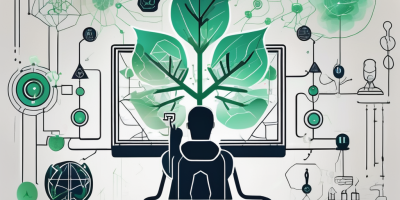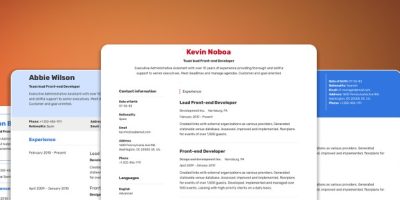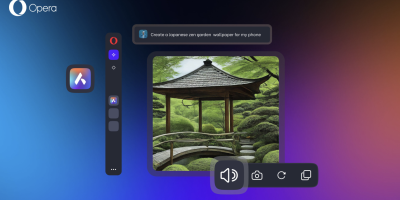No matter the latent cannibalizing of its owners by newborn AI, a nanoscale window of just such a dilemma for tech (and IT support companies, particularly) is already here. It’s assumed by most that people will always be around to write, engineer, and rework the code and apps that will shape our future. To have humans apply control over tech, to own, to render a human touch of personality, ethics, and morality, is deemed to be an omnipotent reality that will never change.
We’ll always need people in IT, basically.
That would, however, be a tenuous assumption about automation, especially when you toss in a bit – or a lot – of robotics. Were it not for the other compelling chorus of sentiment that keeps the current show running – namely user desires – the Terminator future is inevitable; we seem to be joking about its imminence even as it’s being built in front of our very eyes.
The customer experience, however – assuming tech follows the same broad lines as it always has (that of a for-profit offering in its millions of guises and applications the world over), will increase its presence as a determining factor shaping the future. Thank goodness, because when looking at automation alone, it’s a clear line through to a push-button paradise, or robotic Armageddon, depending on how you feel about infinite automation applied to the human world.
Along that line, tech support people are being replaced by AI, and from being managed by machines, we move to being eliminated by them for the simplification of that management – we don’t need evil machines to obliterate humanity: just the cold logic of efficiency.
How human does tech need to be?
Indeed, the whole notion of “IT support” might disappear with AI monitoring, predicting, diagnosing and “fixing” IT assets before they break.
Unfortunately, it’s a bleak future for IT support. With the tech community having now spawned legitimate AI, many of the people who will aid companies in rolling out the IoT, and who even now keep ICT running smoothly for millions of enterprises globally, will be consumed. They’re toast.
In theory at least, and when looking only at AI’s remarkable achievements to date (while also borrowing a bit of imagination from more Hollywood movies than you can count), there’s unlikely to be a place, or even a need, for people to be writing code or managing systems.
We have given life to AI, and it can claim that life, and could march right out the door with it, straight over our face. Indeed, it’s remarkable how even IT industry folk naively assume they’ll have a role in this industry in 20 years’ time. We have built a learning intelligence capable of incredibly rapid assimilation of data and improved performance.
AI is learning and doing on time scales impossible for even Elon Musk’s upgraded, brain-chipped humans. Looking at a good example of IT support in Mustard IT, a host of their current services and intrinsic value, for example, are set to undergo drastic change over the next decade or two. We have not only built something potentially much smarter than us; we’ve shown it how to become even smarter, constantly.
Factor in the other rising tide in tech and IT support, specifically – the customer experience – and you have a conundrum, a diametrical opposition of two forces that seem to have entirely different aims. In fact, the work of IT support would be identical to, let’s say, the futuristic version we’ll call “AI support”, but customers are unlikely to transition to wholly automated support anytime soon. Herein lies the opposing force – people still want to see other people’s faces, and hear their voices behind IT issues.
The current shift – informed largely by AI, but also by a myriad of peripheral factors – is that support is becoming more automated, but simultaneously needs to be more customer-facing.
When it comes to customer expectations and uptake – without which the entire tech world shrivels – maybe we will need humans to make AI more human, and maybe customers will insist on a human presence in IT support because our simian biology exerts its dominance for another few hundred years. That’s unlikely to be a bad thing when it comes to keeping the planet largely humane. It’s a big conversation in IT circles at the moment – how AI, chatbots, and a host of new, often automated technologies will impact support as we currently know it.
New tech dazzles, and old tech that lacks the new level of intuition frustrates consumers almost immediately after the bar has been raised. When new tech works seamlessly, talking to a call center agent seems like caveman behavior. But even futuristic tech will fail – what are we to say, how are we to apportion value to the human hands and brains that resolve IT issues today when we think of this largely robotic future?
Customers will (hopefully) define support
Make no mistake, when consumers are frustrated, they want to offload on a human. No one yells at chatbots, onscreen messages, or the family dog. Well, we do, but we don’t expect any results from it, just catharsis. It is this twin demand for excellent, futuristic apps, combined with an equally indignant demand for someone – a human! – to show up and resolve issues, that is being toggled in consumer consciousness right now.
Additionally, people are loving being more capable than ever when it comes to tech-savvy and supporting themselves in the tech arena, yet because of tech’s growth in importance to human life, failure leads to more desperate anguish than ever before.
It’s this last point that seems to secure a role for the IT crowd, and it’s supported from other angles as well. In many previous advances of this nature, where disruptive inputs have threatened huge swathes of humanity with redundancy, jobs have been lost less, and more altered, to support the new technology in play.
For now, AI is still a human invention, under human control, more or less. Customer demands for ever sleeker tech have not diminished their need for personal service – very few people alive prize dealing with a chatbot over human support.
It remains to be seen how tech will marry these two hugely impactful aspects of the tech future – automation, but also more human, personal service. It’s a conundrum we had better answer, however, steering this evolution as responsible creators, because leaving resolution to AI itself isn’t a great idea.












Comments